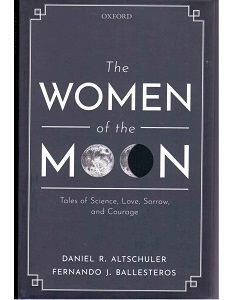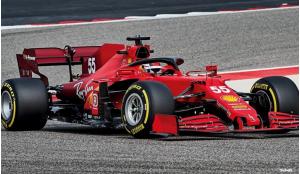In a timely recognition of two current bandwagons of space literature, this book references the 50th anniversary of a mission that placed two men on the surface of the Moon and the lamentable dearth of women in the history of science. Subtitled “Tales of Science, Love, Sorrow and Courage”, the book’s publicity describes it as “a compelling and timely interweaving of science and gender history through personal stories”.
Specifically, the book tells the stories of the 28 women who have lunar craters named after them…the ‘women of the Moon’ in the title. Apparently, some 1586 craters have been named in honour of scientists and philosophers, but only 28 after women. They include astronomers and astronauts, scientific luminaries and heroes of exploration, such as Caroline Herschel, Annie Jump Cannon, Marie Curie, Lise Meitner, Christa McAuliffe and Valentina Tereshkova.
It must have been difficult to constrain some of the entries to a manageable number of pages, but the authors have done a good job in this regard. The text itself is spattered with black-and-white photos and lunar diagrams, and there is a useful index. The book will appeal to historians of science and those with a general interest in the Moon, and although it should not be labelled as a ‘feminist text’, it should also please readers interested in women’s studies.
Most importantly, it draws long-overdue attention to a very specific example of gender imbalance. As the authors (both men) point out, there are “abundant lunar craters still unnamed, and plenty of remarkable women who would deserve such an honour”.











